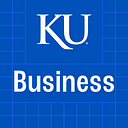Student reflects on summer DEIB conference experience
Junior Donna Kraja highlights her time at the 35th Annual National Conference on Race and Ethnicity in Higher Education

Earlier this summer, the Diversity, Equity, Inclusion and Belonging (DEIB) team took seven undergraduate and graduate students to the 35th Annual National Conference on Race and Ethnicity in Higher Education (NCORE) in New Orleans.
The conference is a resource for higher education institutions to create and sustain changes designed to improve racial and ethnic relations on campus and to expand opportunities for educational access and success by culturally diverse, traditionally underrepresented populations. Steven Johnson Jr., assistant dean of Diversity, Equity, Inclusion and Belonging, and Morgan States, DEIB program coordinator, also presented a session titled “Engaging Student Voice and Perspectives in Diversity, Equity, Inclusion and Belonging Initiatives.”
Donna Kraja, a rising junior studying accounting and international business from Montenegro, writes about her experience.
As a student leader passionate about fostering diversity, equity and inclusion (DEI), attending the NCORE conference in New Orleans was a pivotal moment in my educational journey. The conference brought together leaders and professionals from esteemed institutions, offering me the opportunity to engage in meaningful conversations and gain invaluable insights. Through these interactions, my perspectives were broadened, and I emerged as a better leader, equipped with a renewed sense of purpose and determination.
The road to change and reimagination
One of the key takeaways from the conference was the importance of embracing change and reimagining traditional leadership approaches. Shawn Ginwright, a research associate at San Francisco State University in African American Studies, spoke about his book, “Four Pivots: Reimagining Justice, Reimagining Ourselves”, which promotes awareness, connection, vision and presence. As a leader, it is essential to evolve and remain open to new ideas and perspectives. By actively engaging with diverse voices and experiences, we can challenge existing norms and drive meaningful change within our institutions.
Engaging and staying connected with DEI work
The conference discussed the need for campus leadership to actively engage in DEI work. It was emphasized that leaders must not only talk about the importance of DEI but also demonstrate their commitment through visible actions. This involves building partnerships and fostering collaboration to enhance opportunities for underrepresented groups. By being present and actively involved, leaders can create a supportive environment that empowers all members of the community.
Moving beyond challenges
Rather than focusing solely on the challenges, the conference speakers emphasized the significance of focusing on what we can contribute to our communities and institutions. This shift in mindset enables us to approach DEI work with empathy, responsibility and moral judgment. Through holistic interviews, which involve a series of mini-interviews focusing on different prompts, we can better understand the experiences and needs of underrepresented individuals. Moreover, initiatives like profit HR and training staff on inclusive interview models can help create a more inclusive recruitment process.
Initiatives for inclusive excellence
The conference highlighted the concept of inclusive excellence, a framework designed to integrate diversity, equity and inclusion through intentional, cohesive and collaborative efforts. Several institutions shared their successful initiatives, which served as inspiration for me as a student leader. Allocating resources, acquiring grants and establishing offices dedicated to student success were among the strategies implemented. Additionally, creating spaces for candid conversations and celebrating the achievements of first-generation students through unique initiatives helped foster a sense of belonging and empowerment.
Moving beyond allyship
Lastly, the conference emphasized the need to move beyond mere allyship and toward active advocacy. Allyship is an important starting point, but it is essential to take tangible actions to dismantle systemic barriers and create equitable environments. By leveraging accreditation standards and guidelines, conducting periodic assessments and implementing strategic plans, institutions can ensure that DEI efforts are embedded within the fabric of their organizations.
This conference deeply affected my journey as a student leader and challenged my perspectives. I better understand effective leadership through conversations with DEI leaders and professionals from institutions all over. I learned the importance of embodying authenticity, empathy and adaptiveness in my leadership approach. I gained practical strategies and initiatives that have the potential to create lasting change at KU. By staying engaged, embracing change and actively advocating for inclusive excellence, I believe we can foster environments that empower every individual within our communities.
By Donna Kraja
